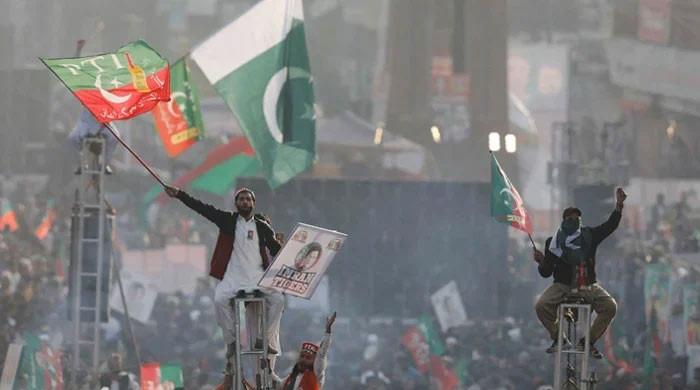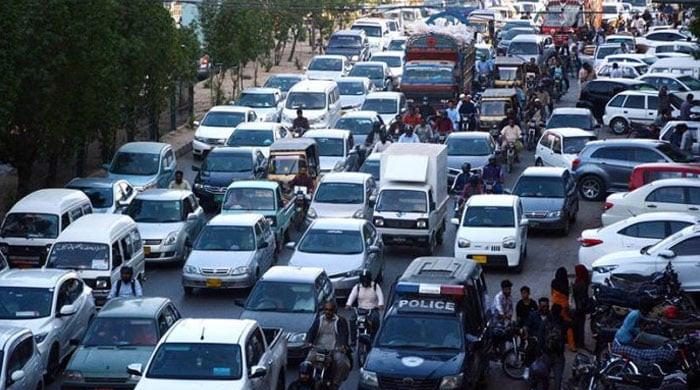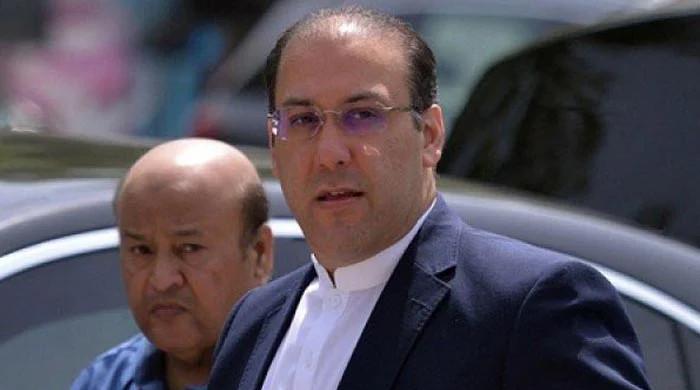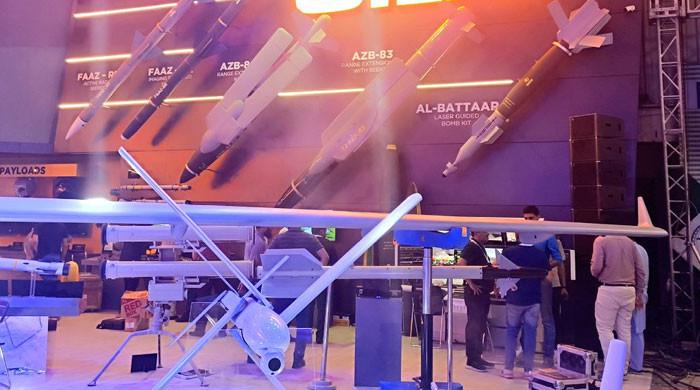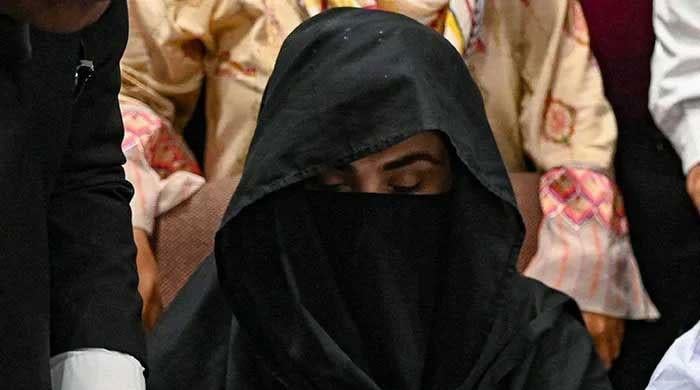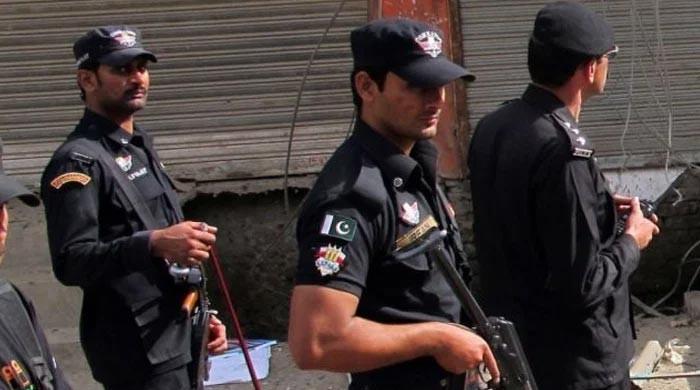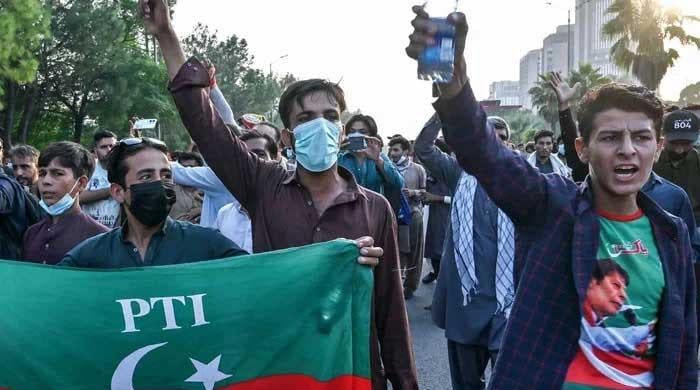Planning a BBQ party this Eid? Here's a list of coronavirus-related SOPs to follow
PM's focal person on COVID-19 says it's "not the time to declare victory" but for "humble introspection and planning ahead"
August 02, 2020

Now that everyone is likely done and dusted with the cutting and distribution of meat among friends and family, as is the religious tradition for Eid ul Adha, it is time for the next step of the festivities: barbecue parties!
While the government and the National Institute of Health (NIH) have repeatedly called for people to avoid gathering and crowds, some may argue that Pakistan is already beyond the peak of coronavirus cases, with the number of infections decreasing consistently and the country recording the lowest single-day death toll from the deadly disease.
However, it is important to remember that Dr Faisal Sultan, the infectious diseases physician brought in by Prime Minister Imran Khan as his focal person on COVID-19, recently urged that this is "not the time to declare victory", rather a "time for humble introspection and planning ahead".
Read more: Guidelines for prevention of coronavirus on Eid ul Adha 2020
In fact, an advisory issued by the government specifically warned against "social visits at Eid and general family get-togethers".
PM Imran in his televised addresses, as well as his ministers, advisers, and special assistants, have also regularly appealed to the general public to exercise restraint on Eid ul Adha. It is absolutely crucial to practice physical distancing of a minimum of two metres, wear face masks, and wash hands intermittently, they have urged over the past few weeks.
So much so that in order to encourage the people to heed to precautionary measures, the prime minister himself also started wearing a mask in public. He has also warned of a "spike in cases" of the deadly coronavirus if the predetermined standard operating procedures (SOPs) were ignored on Eid ul Adha and the holy month of Muharram.
Related: PM warns of 'spike' in coronavirus cases if SOPs ignored on Eid-ul-Azha, Muharram
But if you absolutely cannot live without a traditional BBQ party this Eid (we still recommend you skip this time around), here are some measures and precautions you can take to ensure everyone remains safe and chances of coronavirus transmission are minimised.
BBQ parties following Eid ul Adha usually attract crowds of at least 10-12 people and can go beyond several dozens of individuals coming together at one place.
If you decide to call your friends and family over, strictly ensure that you know of your guests' quarantine habits over the past two weeks and their medical histories and existing conditions (if any). Everyone must follow hand-washing, social-distancing, and mask-wearing measures, and no one who is sick must be allowed to join the party.
Also read: Is it safe yet to order takeout food during coronavirus crisis?
Make sure that you make hand-washing convenient — set up a portable sink if possible, place hand sanitisers around, purchase masks to hand out should any of your guests forget theirs, and set up a sitting arrangement that follows social distancing guidelines.
Preferably, marinate all the meat at home beforehand and if your guests have offered to bring their contribution of meat, request them to marinate it at their respective homes. Try not to have meat prepared at restaurants that offer tempting deals.
In case you decide to marinate it on the spot, a few hours ahead of the actual barbecue process, make sure that all those involved in handling the meat wash their hands, wear face masks, and use gloves.
Once your food is ready, plan distributing food in a way that not everyone gathers at one point to get their share, rather hand it out in plates and set up a point to refill for whoever wants more. Also ensure that there are queues and social distancing followed, given Pakistanis' love to gang up in crowds whenever dinner is announced at social gatherings.
Read more: Govt issues guidelines for Eid-ul-Azha to avert spread of COVID-19
Once everyone has had their fill, dispose of the trash properly and responsibly in sealed bags. Again make sure that after having food and before departing, guests wash their hands and not shake hands or exchange hugs.
While it is urged once again not to hold BBQ parties, here are further guidelines issued by the government and top medical facilities for people to follow:
General prevention measures
The preventive measures that should be followed during slaughtering activity are:
- The site of slaughtering should be away from general public and living areas
- Crowding at slaughtering should be avoided, only necessary persons should be allowed to be present at the site
- Practice physical distancing. Maintain a minimum 2-meter distance
- Promote good respiratory hygiene. Cough or sneeze into bent elbows. If not, a disposable tissue should be used to cover mouth and nose when coughing or sneezing, then thrown in a bin with a lid. Perform hand hygiene after disposal
- Avoid touching eyes, nose or mouth, especially when hands are not clean
- Use gloves and masks. PPE provides a barrier to protect the person from potential exposure to hazards
- Wash your hands frequently with soap and water for 40-60 seconds. If soap and water are not available, rub your hands for 20-30 seconds with an alcohol-based hand sanitizer that contains 60-80% alcohol
General cleaning and disinfecting principles
- Environmental cleaning and disinfection procedures should be followed consistently and correctly before and after the slaughtering of animals.
- Cleaning with detergent and water, followed by rinsing and drying, is the most useful method for removing germs from surfaces. Enveloped viruses, including the one causing COVID-19, are sensitive to detergents. Detergents help to loosen the germs so that they can be rinsed away with clean water
- Disinfecting or using chemicals to kill germs on surfaces, can further lower the risk of spreading infection. After applying a disinfectant, wait for the required exposure time to ensure it kills germs on the surface. Once the contact time has lapsed, the disinfectant may be rinsed with clean water
- Where possible, use disposable cloths/ towels and disposable mop heads. Alternatively, ensure used cloths and mop heads are laundered and dried after use to minimize contamination
Food not a spreader
It is also very important to understand that a rumour that "animal meat at Eid will spread COVID" is untrue, as per Dr Faheem Younus, the chief of infectious diseases at University of Maryland Upper Chesapeake Health.
The US-based public health expert has cleared misconceptions on his official Twitter account, saying "the fear of a COVID+ patient coughing on meat and others getting COVID by eating that meat is made up".
"Wash/cook the meat, wash your hands and eat it. Worry more about hugging/shaking hands with others," Dr Younus added.
In another update, the health expert said a methodology to "sterilise" vegetables was causing "unnecessary paranoia".
"COVID doesn’t spread through food," he stressed.
"Not just unnecessary, this is potentially HARMFUL. Looks like an aerosol generating procedure. Simple washing/cooking veggies would’ve killed any surface virus," he added in another tweet.
Back when the pandemic took over the world, international health organisations had debunked claims and myths that COVID-19, the disease caused by the novel coronavirus, can spread through food.
The World Health Organization (WHO) stressed that it was "highly unlikely that people can contract COVID-19 from food or food packaging".
"There is no evidence to date of viruses that cause respiratory illnesses being transmitted via food or food packaging. Coronaviruses cannot multiply in food; they need an animal or human host to multiply," the WHO had said in its April 8 situation report.
The Centers for Disease Control and Prevention (CDC) in the US had said in a newsletter that there was "no evidence to support transmission of COVID-19 associated with food".
The US Food and Drug Authority (FDA) said: "SARS-CoV-2, which causes COVID-19, is a virus that causes respiratory, not gastrointestinal, illness. Foodborne exposure to this virus is not known to be a route of transmission."




